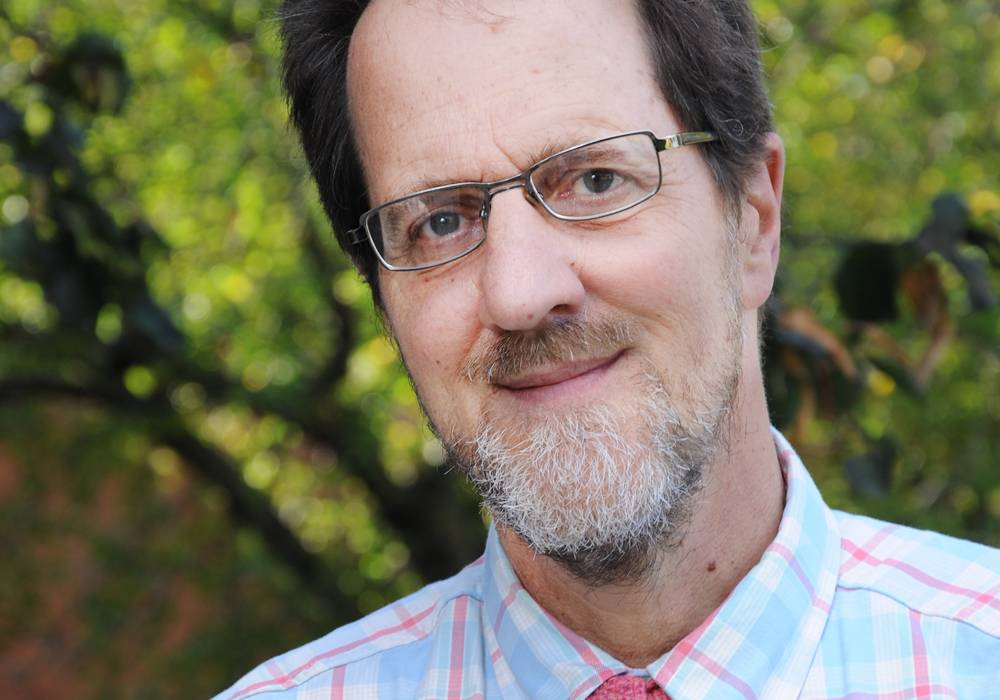First Do No Harm
H. Gilbert Welch examines the assumptions that drive excessive medical care.

A new book by Master of Health Care Delivery Science faculty member H. Gilbert Welch examines the assumptions that drive excessive medical care.
On July 2, 1881, President James A. Garfield was shot twice. Although one bullet grazed the president’s arm, the other entered his back, lodging behind his pancreas. For the next 11 weeks before his death, Garfield suffered tremendously from a wound that needn’t have been fatal.
What doomed the president was the aggressive, around-the-clock medical care he received from doctors, including multiple surgeons exploring his wound with unsterilized fingers and metal probes. During his trial, Garfield’s assassin Charles J. Guiteau represented himself with a defense that rang more than a little true. “I deny the killing, if your honor please,” he told the judge. “We admit the shooting.”
This anecdote is one of many in the new book, “Less Medicine, More Health: 7 Assumptions That Drive Too Much Medical Care” by H. Gilbert Welch, an academic physician, professor, and nationally recognized expert. Brought onboard by Tuck senior associate dean Bob Hansen, Welch teaches in the Master of Health Care Delivery Science (MHCDS) program, a partnership between the faculties of Tuck and The Dartmouth Institute for Health Policy and Clinical Practice.
Even though medical care has made unbelievable progress since Garfield’s day, Welch says there is more reason now than ever for everyone—patients and doctors—to be more thoughtful in its deployment.
“All medical care is not equally useful and some aspects can harm people. I’m a believer in medical care—particularly for the acutely ill and injured—but I think everybody needs to work to find the sweet spot,” Welch says. “The best doctor isn’t necessarily the one who orders the most tests, makes the most diagnoses, and starts the most treatment. The best doctor is the one who makes a considered evaluation—even if their advice is to do nothing at all.”
In this current book, as well as his previous works, “Overdiagnosed: Making People Sick in the Pursuit of Health” and “Should I Be Tested for Cancer? Maybe Not and Here’s Why,” Welch weighs medical fact with the ways—overtly, accidentally, and, at times, with the best of intentions—media and advertisers constantly shape popular opinion on medical care.
For example, he analyzes the impact of the moment when “Good Morning America” anchor Amy Robach discussed the results of her first mammogram, which she underwent on the air.
“A month later, in front of 5 million viewers, she announced that she had cancer and said, ‘Having a mammogram saved my life,’” Welch writes. “That’s powerful. Who can argue with that? But what we don’t know about Ms. Robach—or our coworker, neighbor, friend, or family member—is whether she actually benefited from early detection.”
He points out that in this case and others like it, it is possible that the outcome would have been just as positive if the cancer hadn’t been diagnosed until it manifested symptoms. It is also possible, he adds, that the cancer was never going to progress to a harmful or fatal stage.
According to the National Health Service in the United Kingdom, he writes, the chance of women being over-diagnosed in a mammography screening is about three times higher than their chance of avoiding a breast cancer death.
Ultimately, the key to making the most informed medical care decisions and having healthier expectations for that care is to look beyond prevailing assumptions to the often-disturbing truths beneath. Each chapter of “Less Medicine, More Health,” which Welch will use in his MHCDS courses, follows this pattern.
To further underscore his sincerity in presenting this information as an informed opinion based on medical fact rather than a marketing effort calculated to earn money and attention at the expense of accountability, Welch will donate all the royalties from this book to Upper Valley charities—just as he has done for all of his previous publications.
“There’s nothing wrong with authors making money off books, but I knew that some of these ideas would be very threatening to certain interests,” he says. “Medicine is increasingly viewed as an investment opportunity but I’d like to think that we should have higher aspirations for doctors. I wrote this book for people to read. I have a deep interest in it but it’s in no way financial.”
Seven Assumptions That Drive Too Much Medical Care
-
Assumption: All Risks Can Be Lowered
Disturbing truth: Risks can’t always be lowered—and trying creates risks of its own -
Assumption: It’s Always Better To Fix The Problem
Disturbing truth: Trying to eliminate a problem can be more dangerous than managing one -
Assumption: Sooner Is Always Better
Disturbing truth: Early diagnosis can needlessly turn people into patients -
Assumption: It Never Hurts To Get More Information
Disturbing truth: Data overload can scare patients and distract your doctor from what’s important -
Assumption: Action Is Always Better Than Inaction
Disturbing truth: Action is not reliably the “right” choice -
Assumption: Newer Is Always Better
Disturbing truth: New interventions are typically not well-tested and often wind up being judged ineffective (even harmful) -
Assumption: It’s All About Avoiding Death
Disturbing truth: A fixation on avoiding death diminishes life
Less Medicine, More Health from Dr. Gilbert Welch